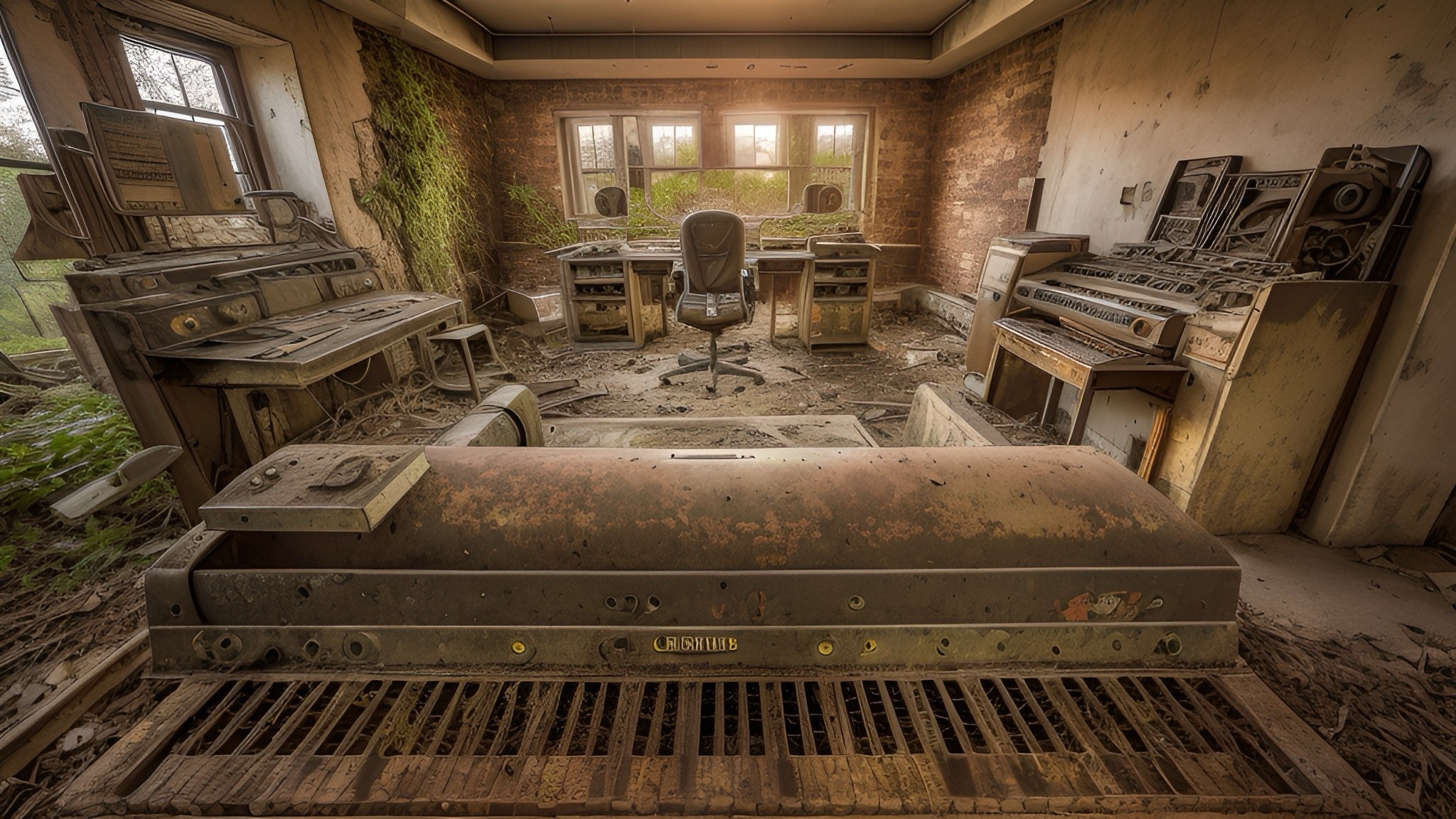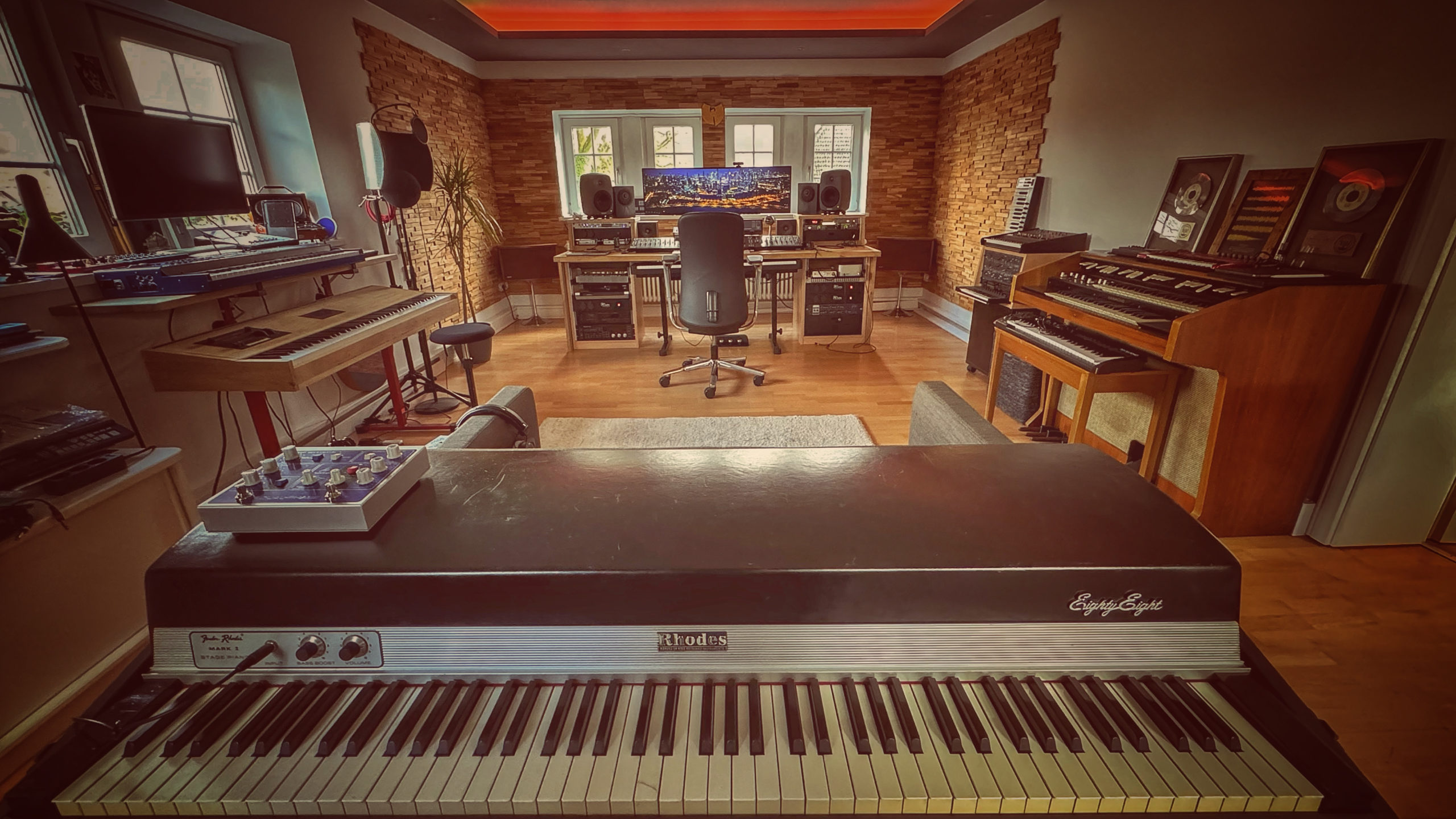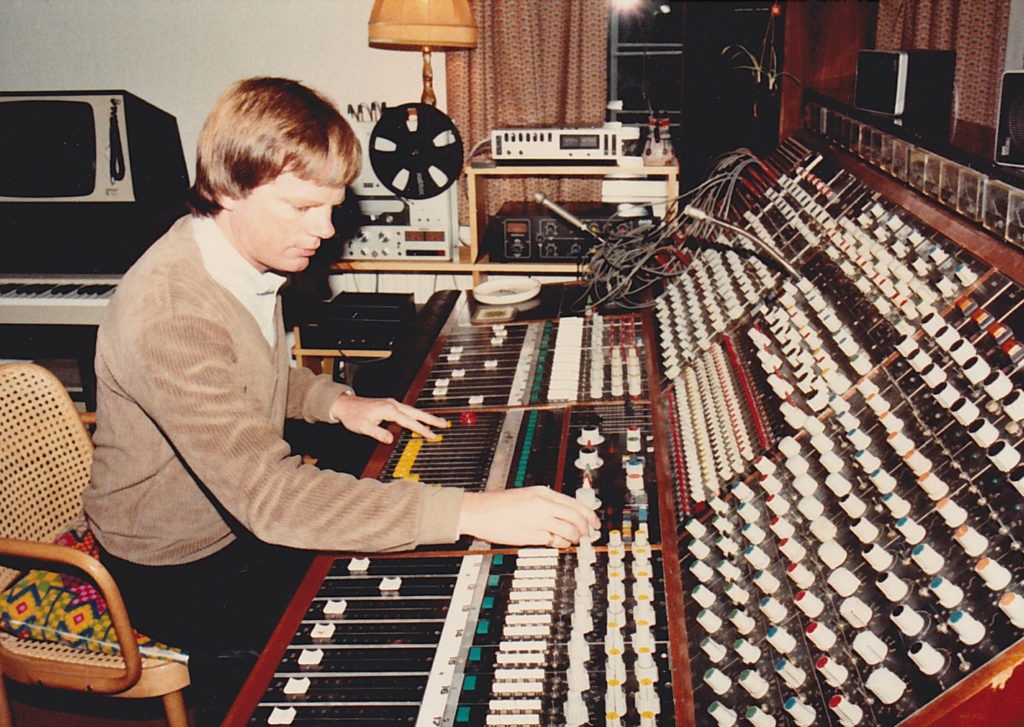
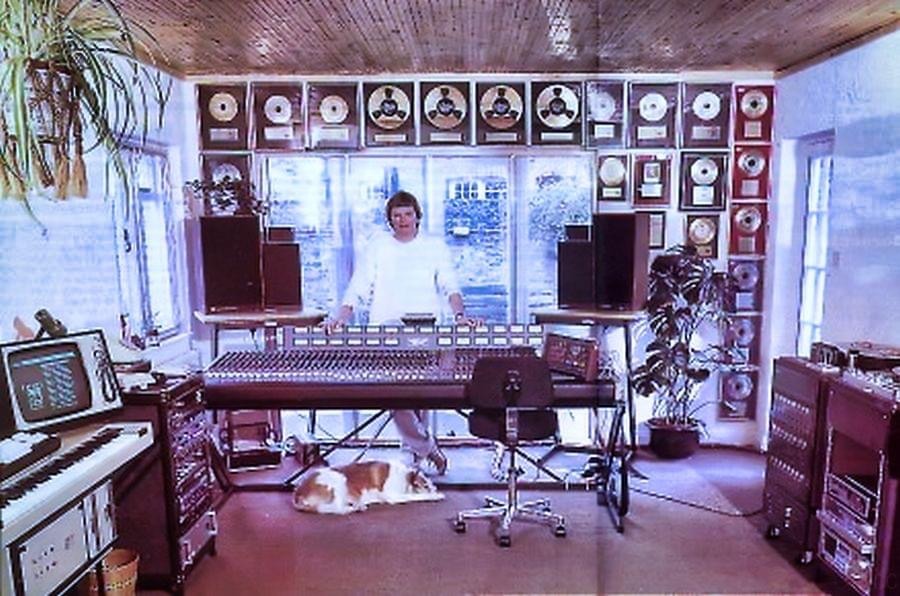
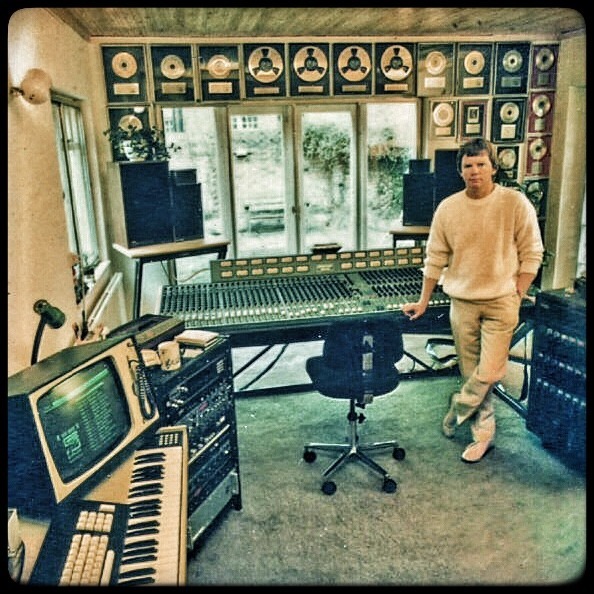
BLUE WEAVERhas played on and contributed to the sound and the shape of an enviable array of gold and platinum selling records, heard by tens of millions of listeners in the United States alone, in between playing a key role in the development of English folk-rock as a member of the Strawbs and Welsh pop with Soul/Pop band Amen Corner not to mention rock with Mott the Hoople, pop and disco with the Bee Gees and Brit pop with Pet Shop Boys.He is also the only keyboard player to have played on six consecutive number one records on the Billboard charts.
Born Derek Weaver in Cardiff, Wales, in 1947, he took up the piano and organ as a boy, he worked locally first, at the age of 15, in Gamlin’s Music Store (he will always be grateful to Horace, Pat and Allain who really helped him a lot), later he worked in Barretts Music Store and played his first gig in the Drill Hall, Cardiff with a group who that night called themselves ‘The Insects’ or was it ‘Insex’? I think they believed people might think it was ‘The Beatles’ playing incognito anyway Horace Gamlin was great and lent Blue a Vox Continental and Ampeg amp as he couldn’t, at that time, afford to buy a keyboard. That gig was the one and only time Blue sang (Johnny B. Good) lead vocal on stage he wasn’t allowed to sing again as he was so good he didn’t want to upstage anyone. A short while after this he became a member of Brother John & the Witnesses, whose lineup included drummer Dennis Bryon. After playing with several local bands Blue decided his life was in music and went to London joined a backing band ‘The Heatwave’ for Cardiff singer Tawny Reed (This is another story) and learnt how to survive in London with little money and a few gigs. He returned to Cardiff knowing that he wanted to return to London and form a successful band this was achieved when he Dennis Bryon, Neil Jones, Clive Taylor, Alan Jones, Mal Evans and Andy Fairweather-Low created Amen Corner — a Cardiff septet complete with saxes, which got signed to Decca’s progressive/psychedelic pop imprint Deram Records in 1966 and enjoyed a four-year string of hits.
These included “Gin House Blues,” “Bend Me, Shape Me,” and “High in the Sky” for Deram, and the number one hit “(If Paradise Is) Half as Nice” for Immediate Records, where they carried their array of hits into the end of the decade. When the group splintered in 1970, Blue, Andy, Dennis, Clive and Neil formed new group, Fairweather, which enjoyed a Top Ten British hit that year with “Natural Sinner.”
Blue left in 1971 and Fairweather split up soon after, however, and it was at that point that Weaver auditioned for the Strawbs (the audition sort of went like – Fancy a curry and a pint? ok you’re in) who were in need of a new keyboard player following Rick Wakeman’s decision to leave their lineup in favor of joining Yes. Joining the Strawbs just before the recording of the Grave New World album, Weaver’s organ and Mellotron added a stately, majestic quality to the band’s sound and was more closely integrated with rest of the group’s playing than Wakeman’s flashier but brilliant contributions to their earlier work had been.
He played a role as a composer (in collaboration with group founder Dave Cousins) as well on Bursting at the Seams, their next album, which not only contained two British hit singles but was the first of the group’s albums to get serious airplay in America, mostly on FM progressive rock stations. Weaver’s contribution to the group’s sound during this period has been preserved in a pair of professionally recorded concerts that were broadcast on radio and have since been bootlegged.
This lineup of the Strawbs split into two factions in 1973, one behind Richard Hudson and John Ford and the other behind founder Dave Cousins; Weaver was allied with neither side wishing that Strawbs would go back to a more folk style, and was suddenly left without a group. He went back to being session musician( and a stint of minicab driving to keep a little money coming in), which led to his joining Mott the Hoople long enough to appear on their 1974 U.S. tour of the US (during which Queen was the opening act) and resulting live album. He had also periodically played sessions with his former Amen Corner bandmate Dennis Byron, who by 1974 was eager to bring Weaver aboard with the group that he was now working with — the Bee Gees. Also at this time Ian Hunter asked if he would join the “Hunter Ronson” band but he had already committed to an album with the Bee Gees, however he did get to do one tour after the “Main Course” album was completed with Ian and Mick which he says was a fantastic experience.
In 1975, he began what became a seven-year association with the Bee Gees and now alongside drummer Dennis Bryon once again and guitarist Alan Kendall. That group had been reshaping their sound in a new, more soulful direction, and had done one album reflecting their new approach, Mr. Natural.
They found that not only did his approach to music suit what they had in mind, but that also they got along well personally. He was aboard for the recording of Main Course.
He not only contributed mightily to the sound of the album, especially in his exploration of the range and texture of synthesizer sounds (then new to the group’s work) in fresh and lively ways, on songs such as “Jive Talkin’”, “Nights on Broadway” and “Children Of The World” but also adding a heavier rhythmic texture by introducing a synthesized bass sound which was very different to Maurice Gibb’s guitar-style bass. After the success of Main Course Robert Stigwood offered Blue the option of becoming a full-time Bee Gee and not a backing/session musician which he accepted and signed the contract.
Weaver also became the first non-Gibb brother to share a composition credit with the three singer/songwriter brothers, on “Songbird” and others later. In the years to come, Weaver became an integral element of the group’s music and its shape, structure, and texture, particularly on the Saturday Night Fever soundtrack.
He played on an enviable run of six consecutive number one hits (and at one time was playing on 8 tracks in the US Billboard Top 10 probably the only keyboard player to achieve this fact) with the group before they exhausted their string of successes in the early ’80s amid the backlash against disco music.
In 1983, a year after leaving the Bee Gees, Weaver rejoined the newly re-formed Strawbs, but by that time he was so busy with session work especially as he had been programming Fairlights since their conception and was very much in demand for sessions by other top artists, that it became difficult for him to fulfill touring commitments with the band, especially later in the decade when they became a fully active performing outfit. Weaver was replaced by Chris Parren at the end of the 1980s, although he was back with the group for their 1993 tour and has now continued to this day to play when needed.
Weaver has played/programmed on records by such diverse artists as Stevie Wonder, the Pet Shop Boys, the Damned, Five Star, Chicago, Lou Reed, T.Rex, Stephen Stills and Swing Out Sister as well as on numerous film soundtracks and commercials, and in the early ’80s owned and operated a successful independent Fairlight studio in West London. Despite Weaver’s notable success with synthesizers from the early-’70s onward, and his use of digital technology in his own studio, he also retains a special appreciation of analogue equipment especially the Mellotron, an early-’60s electronic instrument that would seem to be hopelessly out-of-date (but isn’t), which has also resulted in his contributing to many albums and Rime of the Ancient Sampler, which showcased the instrument.
In November 2010 Blue was made a patron of The Music Producers Guild, the MPG in the UK.
Blue now lives permanently in Germany and for the past 13 years from February until May Blue has been touring Europe with a Musical review of the Bee Gees life and songs called ‘Massachusetts’ fronted by the Egiziano brothers with their great Italian band and ladies. Each year it gains in popularity and for some years the show was joined by Vince Melouney and Dennis Bryon and consisted of three original members. Sadly Dennis died in 2024.
Blue has also recorded and produced the last two Strawbs albums ‘Settlement’ and ‘The Magic Of It All’ both of which reached number 2 on the progressive rock charts and has just ReVisited ‘The Bridge’ which was released in November 2025. He is currently, believe it or not working with rap artists from Wu-Tang Clan and rappers Da Youngsters. Future projects include finishing the Strawbs 50th Concert recording for release and a celebration of David Cousins life and works concert in Bangor University North Wales…Oh! And a book is finally on the way for 2026…
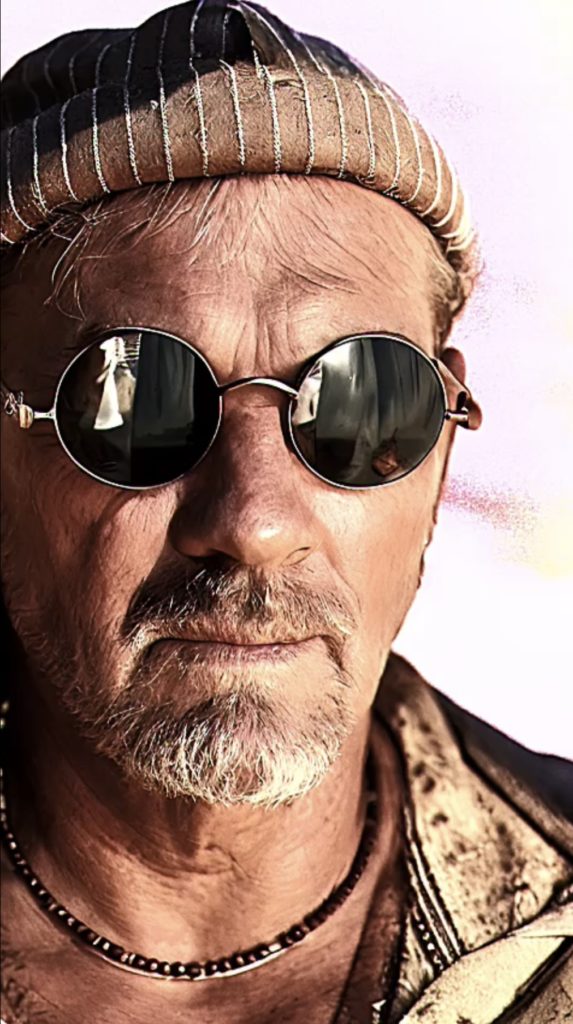
Tracks created for Volkswagen at the Frankfurt Motor Show. Each one was for a particular car model…
